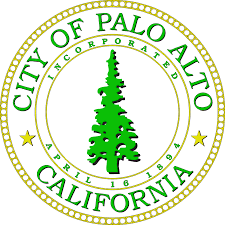The city of Palo Alto should have consulted with its public safety unions before authorizing a 2011 ballot measure to repeal a provision on binding arbitration, an appellate court has determined.
The Sixth District Court of Appeal in San Jose agreed with the Public Employment Relations Board, which had found that Palo Alto violated state labor laws by not meeting with police officers and firefighters before placing Measure D before voters.
City officials said at the time they proposed the measure that binding arbitration handcuffs the city from exerting control over employee salary and pension costs during tough economic times.
Public safety workers have countered that binding arbitration evens the playing field for workers who can’t legally strike.
Nate Heydorff, vice president of the International Association of Fire Fighters, Local 1319, reiterated this point by email on Wednesday and said the union is pleased with the appeal court’s decision.
“… Approximately 40 years ago the city of Palo Alto adopted binding arbitration into the city’s charter because they recognized its mutual value,” Heydroff said. “Palo Alto firefighters stand by their promise to never strike, so it’s only fair that in return the city agrees to utilize binding arbitration to settle disagreements.”
Both the city and unions note that binding arbitration has not been used in Palo Alto since 2011 when voters repealed the procedure. And, firefighters and the city successful reached an agreement without relying on impasse procedures this year.
After voters overwhelmingly approved the measure in 2011, the firefighters union asked the employment relations board for an injunction against the measure. It also filed another unfair labor practice complaint.
The employment relations board ruled that the city should rescind its resolution, leading the city to appeal.
The state appeals court said in an order filed Nov. 23 that the employment relations board went too far in directing the City Council to rescind its resolution. But, the court said it is within the board’s powers to void the resolution.
The appeal court’s decision becomes final 30 days after the filing date. At that time, Palo Alto has 10 days to petition the Supreme Court for a review. The City Council will meet in December to decide whether to do so.
To date, the city has spent $181,780 on outside legal fees, in addition to in-house counsel, on this matter, according to City Attorney Molly Stump.
Palo Alto Mayor Pat Burt said by phone Tuesday that city officials were not shocked by the ruling because the court tends to defer to the employment relations board for interpretation of its own rules.
There’s a “good chance” the city won’t appeal the court’s decision, Burt said. Still, the city will likely try to redo the process, he added.
“The removal of the binding arbitration procedure was crucial in the city moving toward a stable financial future,” Burt said.
According to Burt, the city can meet and confer with fire and police officials and then place a new measure on the ballot. Or, a citizen-led initiative would not have to adhere to the meet-and-confer rule.
Heydroff, a city firefighter, said the union hopes the city doesn’t try again.
“We hope that the city takes this ruling to heart and reconsiders the tremendous importance of creating a fair and balanced playing field for all city employees,” Heydroff said. “Municipalities across the state recognize the importance of binding arbitration as an essential tool, and hopefully the city of Palo Alto will join them.”
http://www.mercurynews.com/2016/12/01/court-palo-alto-erred-in-bypassing-unions-on-measure-d/


